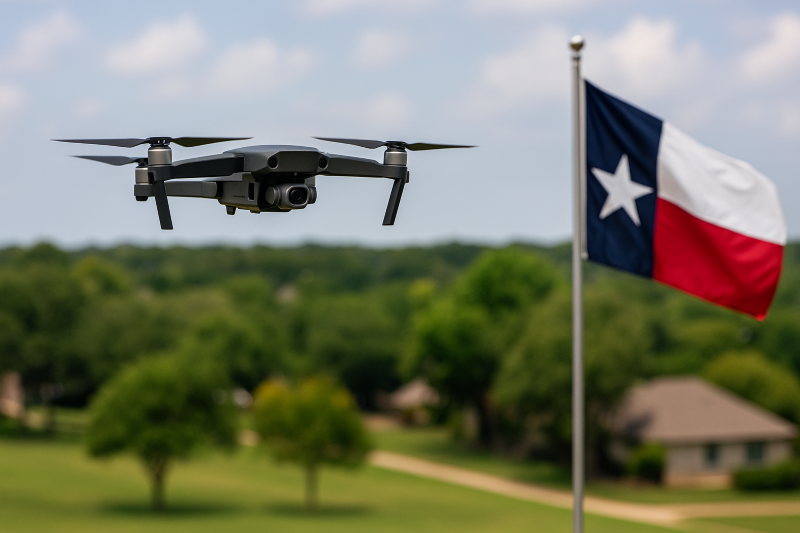
Drones have become more popular than ever, whether for capturing stunning aerial photos, surveying land, or just flying for fun. But before you launch your drone in Texas, it’s worth knowing that the laws governing their use are more complex than you might expect. From federal licensing requirements to unexpected limitations on when and where you can fly, here’s a breakdown of key drone regulations every Texan should know.
FAA Certification and the 55-Pound Rule
Think you can fly any drone as long as you’re not getting paid? Think again. Under Federal Aviation Administration (FAA) rules, any drone over 55 pounds requires not just registration but also a higher-level certification and yes, a pilot’s license. That means hobbyists looking to fly large drones are subject to some surprisingly serious regulations.
- Federal Law Reference: FAA Part 107 rules govern small unmanned aircraft systems (sUAS) and require a Remote Pilot Certificate for non-recreational use of drones over 0.55 pounds (250 grams) and especially over 55 pounds.
- Pilot Requirement: Drones exceeding 55 pounds fall under manned aircraft rules, requiring a traditional pilot’s license.
Recreational Use Has Narrow Definitions
You might assume that as long as you’re not being paid, any drone flight is considered recreational. However, the FAA defines recreational use narrowly: flying solely for personal enjoyment. Activities like photographing a high school football game even without pay could be considered commercial use under FAA rules. If the footage is later published or used in any public or promotional way, the pilot may need to comply with commercial operation rules.
This means even casual pilots need to be cautious about how they use and share their drone content.
Expectation of Privacy Still Applies
Texas law upholds longstanding privacy protections when it comes to drone use. You can't fly over people’s backyards, windows, or other private areas where they have a reasonable expectation of privacy no matter how fun or harmless your intent may be. Violating these boundaries could potentially open you up to civil or criminal liability.
- Texas Government Code §423.002 & §423.003: These sections outline where drone surveillance is prohibited and list exceptions for law enforcement and certain professions.
In short, just because a drone can go somewhere doesn’t mean it legally should.
Final Thoughts
Flying a drone in Texas may seem like a simple hobby, but the legal implications can be significant. Whether you're flying a lightweight recreational model or a 500-pound professional rig, knowing the boundaries of FAA regulations and Texas privacy laws is essential. When in doubt, assume more regulation not less.
All information provided on Silblawfirm.com (hereinafter "website") is provided for informational purposes only, and is not intended to be used for legal advice. Users of this website should not take any actions or refrain from taking any actions based upon content or information on this website. Users of this site should contact a licensed Texas attorney for a full and complete review of their legal issues.
